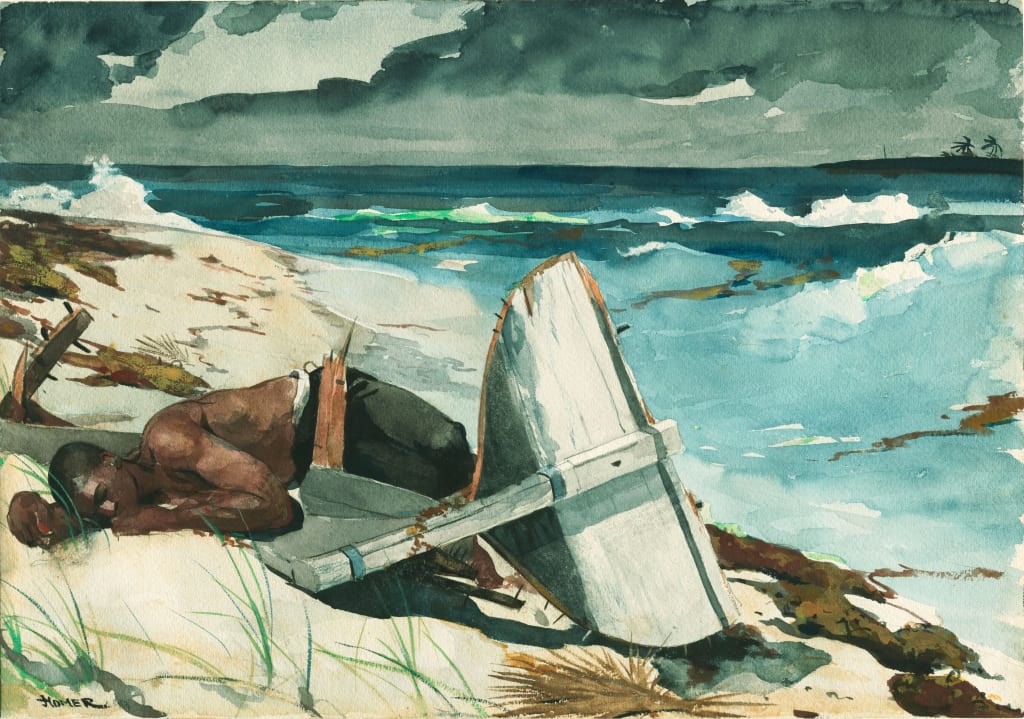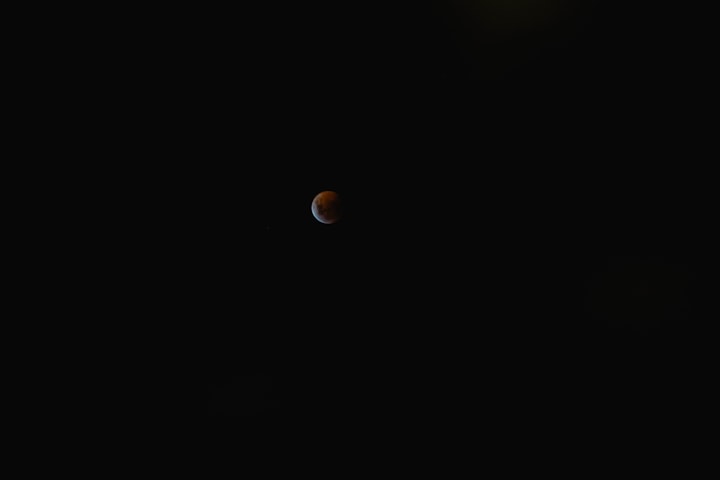Achaemenides
In Virgil and Ovid, the Greek castaway Achaemenides is a member of Ulysses’ crew who is left stranded on the island of the Cyclopes after his comrades make their escape. He lives on in the hills until he is eventually rescued by Aeneas, who is seeking a new homeland following Troy’s destruction at the hands of the Greeks.

Achaemenides
The sybils didn’t bother with me
but one or two poets filled the blanks in:
an Ithakan king, vying for the sea,
conscripted men to the mast on
his flagship crossing to Troy.
Nearly his whole crew, wretched cost
of rudderless roving, would die
in some way or another. I’d outlast
my comrades, my skull a cave
for every cast-off thought,
cleared by sea-winds. The waves’
aged murmur, a wine-dark clot
of spray, was my eternal clock
to flail and flare on the ebb.
I stood watch as if on my ship’s deck
and slept in a berry-shrub
at night, held my hungry peace.
He was out there, tremoring the island
with his rams, roaring without cease,
a brute, drooling shepherd, blind
in one gored eye and still raging.
Him, and a tribe of him, their fangs
gritted by quotidian carcass-gorging,
eyes rusted as mooring rings.
I’d neither the brains nor the backbone
to engineer my escape, as my pilot
had. I preferred to linger, my beard laden
with barnacles, and eye the blood-lit
skyline for rescue. Laughing gulls,
black-armoured scorpions and flame-
petalled flowers thronged the hills
and shore, and the sun’s daily whim
beat too heavily for comfort. When
sleep did take me, I saw brass shields,
chariots, my old xiphos drawn,
flames tearing through Trojan fields.
I prayed for the gods to be cruelly kind
and smite me with flood or drought;
somehow I kept my presence of mind,
did not gasp my despair out.
I needed a woman, needed her touch
and kiss. I thought often of the girls
I’d loved before sailing, memories a crutch
for my mind to stoop on. Heavy scrolls
of loneliness, heat-rippled, tore at me.
I’d see none of them again, I knew,
drank my life’s fill of their beauty;
had lost them like my ill-starred crew.
If I am to die, I want to fall by man’s
hand, not crushed or sunk or devoured.
I prayed for that much, at least: the plans
of Olympus to see me safely delivered
from his eyeball’s crimson gush,
the cave we’d made our woollen escape
from gawking at the bay, lethal hush
stirring him from sleep, the grapes
that gave him his wine burst in his palm,
his voice and footfall alike echoing
the strafed harmonic of thunder. Blessed to swim,
or condemned to sink: I’d no way of knowing
until a fresh, high glut of tide brought
the Dardanian galleys, and my first glimpse
of raised sails, bellying and white,
in an age. Mariners walked in slumps,
leaning to their oars, arid lips
panting for haven and home, beards
surf-smeared, fibrous as bullwhips.
I saw horsehair helms and blunt swords,
a fleet steered clear off the map’s edge
and held back, afraid for my life.
But these were men in the anchorage,
not beasts. Surely blood was enough
for mercy; with my thorn-fixed cloak,
what possible threat was I to them now?
Despair, weariness, terror and shock
felled me at the knee, and I howled out:
“Men of Troy, fly you far from this shore!
Where you make port is not important.
The danger you here face is too great to ignore.
Put back to sea, save yourselves this instant!
I who was your Grecian foe, now beg thee
to grant but one meagre service:
bring me with you if you will, or else kill me!
But cast off now, before the giants arise!”
I say this without shame: I wept, grovelled,
kissed the barren sand before them.
The oldest of them stepped forward
to give me his hand, and I stood abeam.
Their captain, a born survivor as mine
once was, saw the giant for himself
and did not stay to fight. Jaded as his men
were, he led them back down the pebbly shelf
to the ships, with myself in their number,
and we slipped a swift course from the cove.
The one-eyed clan cursed our venture
but fathoms ran too deep for their heave,
their stride. Now seaborne and free at last,
I was ragged locus for the shoal
and river-mouth, reefs clenched like a fist
under the bare walls of the Geloan.
Yet, sun-drunk and hunger-shredded,
I saw we had a good skipper, wary
in his pilotage but alert to the dreaded
unfolding of a voyage, dogged emissary
for nomads. Yet he never claimed
to know his heading; he was as lost as I.
As gratitude, I kept my head down
and worked the mains, my new duty
to share utterly in my rescuers’ fate.
They fed me, healed me, found me a home.
And it came as no surprise of late
that a price isn’t on my head, or that no-
one even set off in search of me
or my brothers. Yet I am here, thankful
and restored, saved by an enemy
whom I greet and look to now as an idol
of my flight, no longer hunched
as the rock I saw the blind herder fling
at my receding ship. So from staunch
shores, now, may my voice once more sing.
About the Creator
Daniel Wade
Daniel Wade is a poet and playwright from Dublin. His debut play 'The Collector' at the end of January of this year. He is the author of the poetry e-chapbook 'Iceberg Relief'. His spoken-word album is 'Embers and Earth.






Comments
There are no comments for this story
Be the first to respond and start the conversation.